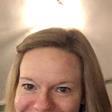After suffering a horrific attack six years ago, Rachel Peddar was left with life changing injuries. Yet as they weren’t visible, she found herself having to constantly remind friends and family of her new challenges.

I suffered a traumatic brain injury (TBI) six years ago, following a near-fatal attack. The physical injuries appeared to heal and once my hair grew back, I returned to looking like my “normal” self.
The physical and especially the cognitive/mental fatigue was, and still is very wearing. I felt exhausted for months afterwards. Since I didn’t expect to come out of the attack alive, I did seriously question God’s decision for keeping me on earth, when I felt incapacitated. I had trusted God before and during the incident but now trusting him in moving on with a brain injury and reduced capacity from debilitating fatigue was a challenge for me. I did begin to feel depressed but pushed myself to do things for other people, make good use of my time and resources and lean on God’s strength. Nevertheless, I knew that God must have a purpose for me in my suffering. I persevered in faith, initially intending to return as a missionary, until it became clear that my health and wellbeing needed some improvement and stability.
Since I didn’t expect to come out of the attack alive, I did seriously question God’s decision for keeping me on earth.
Heart wounds, or wounds from trauma, be they emotional and/or psychological in nature, take longer to heal; particularly when combined with the development of post-traumatic stress (PTSD). They are also not visible, and the hidden nature of these “scars” combined with the hidden disability is difficult to live with and manage.
Therapeutic interventions and neurological, cognitive rehabilitation were helpful at the time and these days I still must implement and revise strategies for everyday living. Nevertheless, this means I must also educate and continually remind family and friends of my impairments and challenges. Since my difficulties are unseen, there is a great number of misunderstandings, miscommunication and perhaps assumptions made by others about me. This is painful for me to accept but it does push me towards my Father God time and again because he knows, he understands, and he cares about me.
I wrestle in prayer in this regard, crying out to God for vindication of some kind. I long to be known and understood for who I am and what I am capable of (or not!). Psalm 77 and other psalms of lament can be helpful for reading and praying aloud. These can prompt raw honesty with God and open the way for real expression of the grief, pain and anguish associated with one’s circumstances and challenges. The psalms also remind me that Our Father God is a personal God who does know me intimately and in his sovereignty is able to help me move forward in his strength.
Since my difficulties are unseen, there is a great number of misunderstandings, miscommunication and perhaps assumptions made by others about me.
Moving cities and in many ways starting a new life has brought new challenges and setbacks in terms of health and employment. I have sought to draw closer to God and spend time in his presence and in his word. I have also had to utilise my nursing knowledge to assert myself with medical personnel to obtain the correct medication and interventions. Additionally, I have had to set increasingly stronger boundaries around myself and with others for the purpose of good self-care. This changes of course, from day to day, week to week and requires me to be clear in my communication with others about my current struggles. I am learning to accept that I may disappoint people in not meeting their expectations but that I need to grow in my ability to self-care well.
In all this, I am profoundly grateful that God is sovereign and unfailingly loving. In my weakness he is strong (2 Corinthians 12:9-10). I need to continue to rest in him, leaning on his Spirit’s empowering strength.

































No comments yet